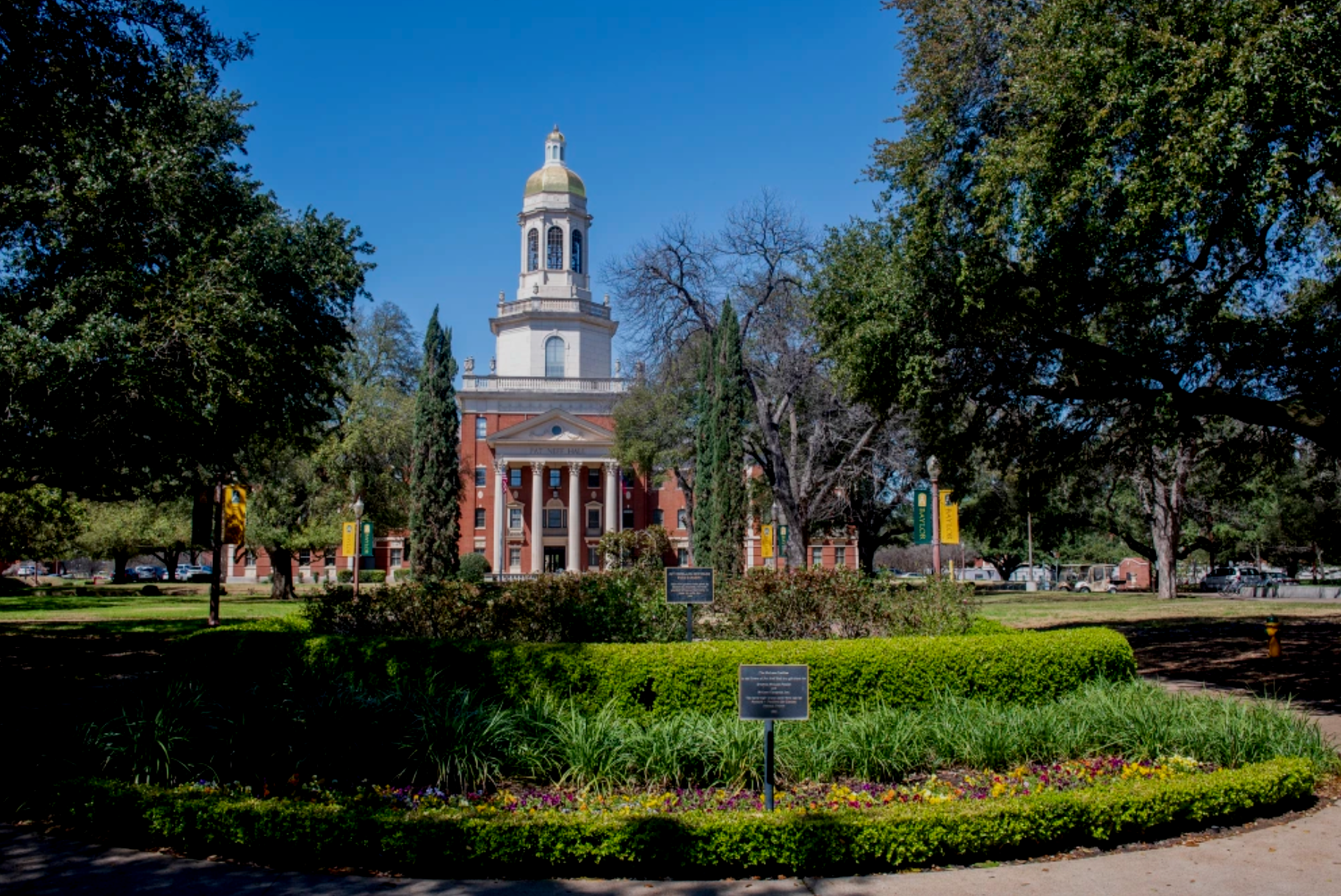Waco tribune | Rhiannon Saegert | Oct. 24, 2020
Baylor University’s unofficial LGBTQ student group has reapplied for official student group status, this time with the backing of the Student Senate and student NAACP chapter.
Gamma Alpha Upsilon is the newest name for the unofficial LGBTQ student group at Baylor University. Last semester, a faculty member started anonymously lending the group a lecture hall to serve as a designated meeting space, one of the things the group cannot get from the university unless it recognizes them as an official student group. GAY Vice President Jake Picker said the group has applied for a charter every semester for the past 10 years, and the university has always declined.
“They decline and don’t really say anything to us about why they declined,” Picker said. “But we’re really hoping this semester, things will be different.”
In the past, university officials have said the Gamma Alpha Upsilon organization runs afoul of Baylor’s statement on human sexuality, found in the student policies and procedures, which states students are expected to not participate in “advocacy groups which promote understandings of sexuality that are contrary to biblical teaching.”
Picker, who was a member of GAY last semester, said he is more hopeful this year in light of support from Baylor’s Student Senate and Baylor NAACP, along with the United States Supreme Court’s recent ruling that LGBTQ people are protected under the 1964 Civil Right Act.
He said the group continues to grow each semester.
Veronica Penales, who identifies as queer, co-authored the Student Senate’s “No Crying on Sundays” resolution in support of GAY with Addison Knight, Bethel Tesfai and Marisol Villarreal. Penales said the resolution, which passed 33 to 14, is an appeal to the Baylor Board of Regents.
“It is essentially an addition of a nondiscriminatory clause to the Baylor student activities policy of chartering student organizations,” Penales said. “Our ultimate goal with that was to charter the unofficial LGBT group on campus.”
Villarreal said she and Tesfai ran on a diversity platform, and she was “crushed” when a similar diversity and inclusion bill did not pass last semester.
The measure’s title refers to a line by Mary Lambert in the song “Same Love” by Macklemore & Ryan Lewis. Lambert also sings the refrain, “Love is patient. Love is kind.”
“To me this bill is very important,” Villarreal said. “I did it for my friends and family who are in the community and I wanted to make sure future Baylor bears that come to campus are fully represented.”
The bill references a petition that circulated last semester calling for the university to recognize the group. It received more than 3,000 signatures from alumni and faculty and coincided with the formation of the group BU Bears for All. Penales launched a second petition specifically for current students after the measure passed.
“This is strictly for the current Baylor student body so that the regents know that Baylor students are backing this,” Penales said. “If they support the students like they say they will, hopefully some change will happen.”
Baylor NAACP also voiced support for Gamma Alpha Upsilon in a statement. President Lexi Bogney said her chapter includes LGBTQ members and allies, but their reasons for supporting the group are broader.
“While the NAACP may focus on race-based discrimination, we don’t tolerate discrimination at all,” Bogney said. “For this organization to not be able to be chartered because they have beliefs that may contradict Baylor’s values, it still contradicts Baylor’s statement as a whole.”
Bogney said the university’s statements of support for LGBTQ students contradict official actions.
GAY officers met with the Board of Regents last semester to discuss their experience on campus, and Baylor President Linda Livingstone announced the university’s intentions to better support LGBTQ students in a statement in August.
In a statement, the university said officials appreciate the Student Senate’s role in representing Baylor students, but pointed out the resolution is nonbinding and the final decision lies with administration and the regents.
“Both previously have made a strong public commitment to provide a loving and caring community for Baylor’s LGBTQ+ students,” according to the statement. “This commitment remains unchanged today, as it is embodied in Baylor’s mission that calls us to educate students within a caring community.”
The statement outlines the resources available to LGBTQ students, including the Title IX Office, Bias Response Team, Chaplain’s Office and Spiritual Life, and the Counseling Center. It also cites the university’s decision to allow the group to meet in the borrowed classroom over the past year.













